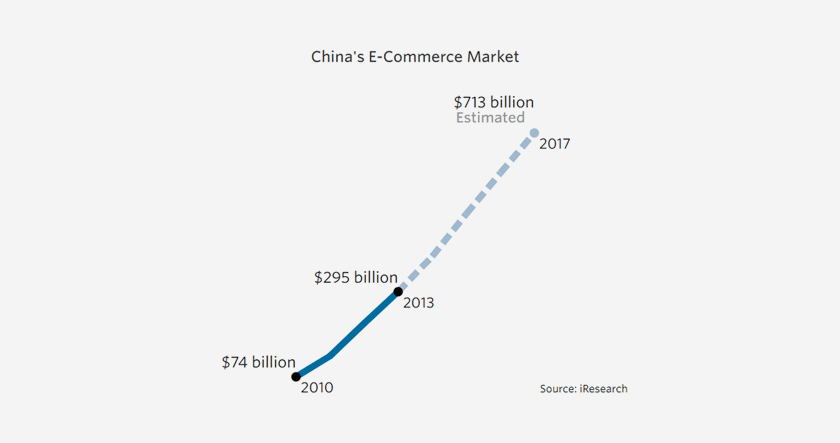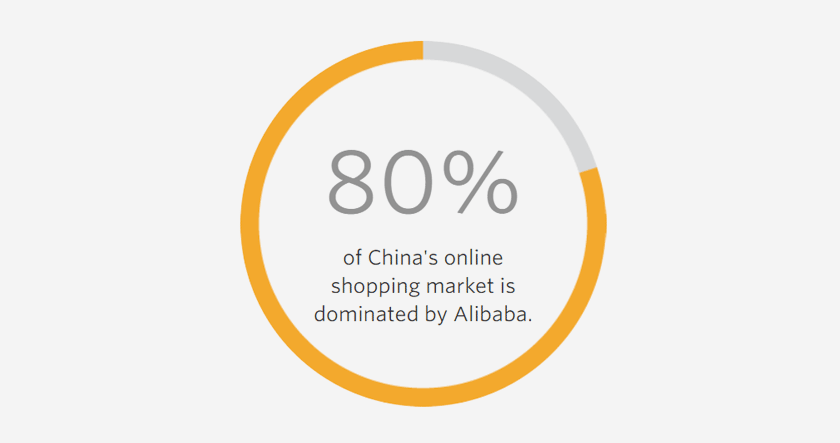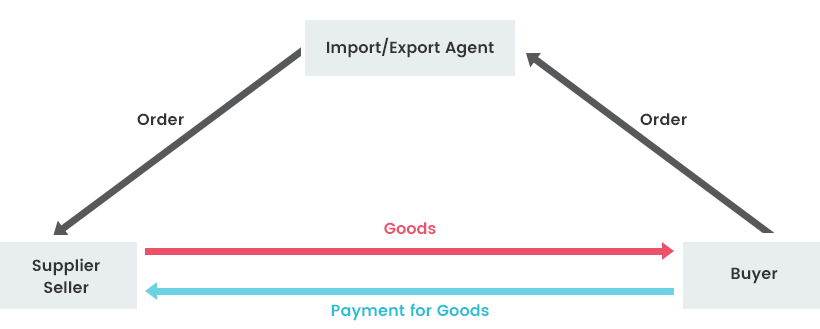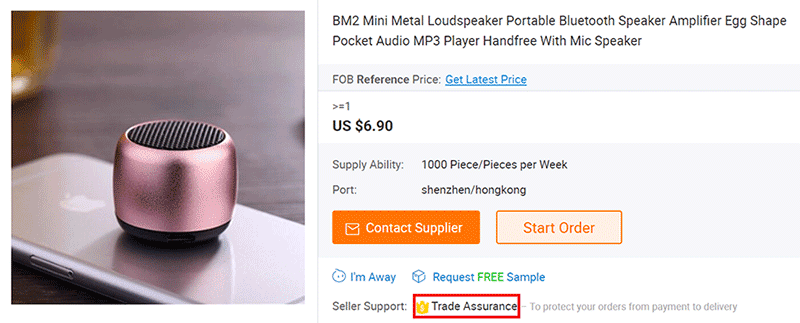There are two initial things you need in order to start an online business:
- A product idea
- A supplier
If you already have your product idea, the next step is finding the perfect supplier.
Thanks to Alibaba, it’s easy as pie to find a wholesale supplier overseas. The problem, however, lies in finding a trustworthy supplier.
As you may know, Alibaba has tens of thousands of suppliers. But they’re not all real suppliers – there are lots of reports of scams.
Luckily, this guide will teach you how to find the best suppliers on Alibaba, while avoiding the frauds and helping you start (or expand) a successful online store.
Let’s get right into it!
What is Alibaba?
When researching online anything related to eCommerce or dropshipping, you’re going to keep hearing this name, Alibaba thrown around. So what exactly is Alibaba? Alibaba is the world’s biggest eCommerce company and is parent company to big names such as AliExpress, Alibaba, TMall, and Taobao. The latter two are marketplace sites for Chinese speaking shoppers located in China so we won’t dive into those two in this article. Alibaba’s AliExpress is a site that sells very inexpensive goods to everyone outside of China. The site is in many foreign languages, including English so it’s a pretty popular site worldwide. The prices are so cheap that many people use the site for dropshipping since AliExpress doesn’t put that much effort into branding each product. The other company under the Alibaba Group, Alibaba, is a site that is more suited for wholesalers or those looking to sell a product in bulk. It’s more of a B2B website whereas AliExpress is supposed to be B2C, though it often becomes B2B as dropshippers use the site to sell products. Alibaba does, however, have dropshippers on their site too but they’re a bit hard to find as most of the suppliers on the site have a Minimum Order Quantity (MOQ).
Why should you use Alibaba?
First of all, why Alibaba? Why not some other online supplier directory?
Well, the number one reason is that you can get almost anything for a fraction of the cost of what you could get it for elsewhere.
Think of Alibaba as the Amazon version of Asian wholesale products. They have it all.
Jewelry for less than $0.10 per piece, designer-quality clothing for a few dollars, electronics for half of what you can get them for in the Australia. – Yea, it’s that good.
Plus, there’s the fact that when you look at China’s eCommerce market, you see a lot of growth…

Care to take a gander as to where that growth is coming from…?
You guessed it: Alibaba!

What does this say about Alibaba? They know what they’re doing.
But that’s not all. Let’s go over the pros and cons of Alibaba so you can figure out whether or not you want to use them for your business.
Pros of using Alibaba
Let’s start with the pros.
Here’s why you should use AliBaba:
- Lower manufacturing costs.
- High number of suppliers to choose from.
- Organized categories to find products fast.
But the fourth and most important advantage Alibaba has to offer is the networking benefits.
Alibaba has an ever-expanding network of users/suppliers catering to various products and services. Which means you’re always going to have new stuff to choose from and new suppliers to build relationships with.
Plus, Alibaba has an incredible relationship with the Chinese government (who, as you may already know, is the gatekeeper of the economy).
But things aren’t all sunshine and daisies. There are quite a few risks when using AliBaba to find a supplier.
Risks of using Alibaba
Remember when I said there are lots of scams on AliBaba? Well, this is only one of the risks. There are more, including:
- Language and communication barrier can be difficult to overcome.
- Longer shipping time.
- Poor customer service.
We’d also like to point out that Alibaba has a downright terrible rating on the BBB (Better Business Bureau).
Because Alibaba is not accredited by the BBB, we can not give you the proper score they received. Though, due to the amount of poor reviews, we can say that it’s less than ideal.
Let’s be frank, here…
There’s always risk involved when dealing with wholesale suppliers. In order to weed out the good from the bad, you’ll have to do a bit of digging.

Don’t take Alibaba off the table just yet. Let’s go over how to properly vet suppliers.
How to Find Good Suppliers on Alibaba
Step 1: Researching Alibaba Suppliers
To avoid the drawbacks of the platform, you need to do some research on your suppliers before you buy. We suggest starting by filtering your initial search to weed out some of the bad candidates.
Make use of all available filters to narrow down your suppliers search
There are a few different types of suppliers you’ll run into…
- Manufacturers
- Wholesalers
- Dropshippers
- Importing agents
Let’s go over the differences with each supplier, so you have a better understanding of who (and what) you want.
Manufacturers
A manufacturer is a company that produces items for use or resale. The majority of AliBaba suppliers are manufacturers.
Because manufacturers are the direct creators of the products, they can offer very low prices on items. However, their minimum order quantities (the minimum number of products you can buy in one shipment) are often very high.
Usually, manufacturers sell direct to suppliers such as light and bulk wholesalers and liquidators (since they can afford to buy in bulk and hold lots of inventory).
Therefore, most retailers find that manufacturers are unreachable (in terms of product sourcing). Keep in mind that some smaller manufacturers will work direct with retailers. It never hurts to ask!
Wholesalers
When you buy products from a wholesaler, you don’t have to buy in bulk.
Wholesalers are able to house a lot of products for you which means, you’re getting products at a discounted price.
In other words, the more you buy, the better the price!
A manufacturer is able to pass on better prices to a wholesaler because they typically buy in bulk and have the storage space to house the goods until they’re sold.
Of course that’s the benefit of wholesale. The downsides are just needing lots of capital and storage space!
Dropshippers
Using a dropship resource means there is no volume purchasing. Instead, you’re buying one product at a time.
When you compare this with wholesale suppliers (where products are purchased up front), a drop shipping model means you’re not paying for the products until they’re sold.
It works like this:

The downside of drop shipping is the price. Because you don’t buy in bulk, you can’t get the best price for the product. With wholesale suppliers, you can.
There are a few other downsides, like not being able to brand yourself and potentially long shipping times. But this is an issue no matter what supplier you use, since AliBaba suppliers are all in Asia, so even bulk purchases will have long shipping times.
But it also means no holding of inventory, no shipping or packing, and in some cases no need for customer service! (For example, FBA (fulfilled by Amazon) will take over support for you.)
Importing agents
Agents can be quite tricky at first, because they’re nothing like wholesalers, dropshippers, or manufacturers.
Rather, they play the role as the middleman. They bring customers and clients together and, sometimes, do it for free.
To give you an example of what we mean, imagine Company X (maybe you) as an import/export agent, AliExpress is a manufacturer, and Amazon is a department store looking for goods that AliExpress sells.
In this scenario, Company X would act as the middleman between AliExpress and Amazon. X would see that Amazon is interested in acquiring goods that AliExpress owns, and works hard to bring the buyer and seller together.
Notice how eBay would not be taking title to the goods and would not provide the services that a distributor would perform.
I know this is a little complex, so here’s a visual:

There are two types of agents to look for (if you choose to take this route)…
- Traditional import/export agents. An export agent works in the country where the product is produced. An import agent is based in the country where the product will be sold, in which case, represents the buyers.
- Brokers. A broker is an independent agent who brings buyers and sellers together (as explained in our scenario above). A broker differs from the traditional import/export agent because they don’t usually represent a company. Instead, they’re hired to bring together one-of-a-kind or nonrecurring deals.
Now that you know which type of supplier you’d like to work one-on-one with, it’s time to discuss how to filter out the bad suppliers.
Look for specific supplier types
On AliBaba you’ll be dealing mainly with manufacturers. But if you want to avoid the scams and general low-quality suppliers, AliBaba provides some supplier filters you’ll want to use.
Trade Assurance Suppliers
Trade Assurance is a free service offered by Alibaba that’s designed to help create trust between buyers and suppliers.
Trade assurance means you’re covered if…
- The products you ordered aren’t shipped on time
- Your products don’t meet the quality standards
If either of these happen to you, AliBaba will pay for the goods and you’ll get a full refund. So using Trade Assurance is a fantastic way to avoid scams!
So how do you use this feature?
When searching for products/companies through Alibaba, check off the button that says “Trade Assurance.”

From there, you’ll be able to look at products and suppliers who have signed up with Alibaba’s trade assurance policy.

The next suppliers to be on the lookout for, are…
Gold Suppliers
“Gold” is a premium membership for suppliers on Alibaba. Suppliers who pay the fee ($10,000 USD) are provided with comprehensive ways to promote their products which, in turn, maximizes product exposure and increases their ROI.
Because gold suppliers have to pay such a large amount each year, it basically weeds out scammers who are only after your money. What scammer would pay that much money?
This does not mean, however, that you’ll be paired with a reliable supplier, or one who supplies top-notch materials. You could still get someone who doesn’t respond to you, or someone who supplies cheap products.
To find a gold supplier on Alibaba, check off the box that says “Gold Suppliers.”

From there, you’ll get results from gold suppliers on Alibaba.

Not only has this wholesaler been a gold supplier for three years, they’re also a trade assurance supplier!
Which means, you’re protected when you order from them and you’ll rest easy knowing they’ve been in business with Alibaba for three years as a gold supplier!
Finally, you have…
Assessed Suppliers
Assessed Alibaba suppliers may be the very best suppliers to do business with.
Why? These suppliers are all…
- China Gold Suppliers
- Hong Kong Gold Suppliers
- Taiwan Gold Suppliers
… who have been inspected onsite by a third-party inspection company.
They offer all the information for Alibaba’s Factory Audits, including…
- Assessment Reports
- Verified Videos
- Verified Main Products.
To deal with assessed suppliers, simply check off the “Assessed Supplier” button, and skim through the suppliers and products available.

Now, it’s time to review your supplier-to-be!
Step 2: Reviewing Alibaba Suppliers
Your goal when reviewing Alibaba suppliers (or any supplier, for that matter) is to understand what value they’re bringing to your company.
Your should have a system in place for evaluating, selecting, and reevaluating the suppliers you want to associate your business with.
Below are a few tips on how you can do this effectively.
How to verify a company’s background
One of the very best ways to check up on a company’s background is by performing an on-sight check.
Performing an onsite check is no easy task. You’ll need to check a potential suppliers website for their…
- Business license
- Company or factory location
- Ownership status
- Photos of the supplier’s operations
- Contact information
- Certifications from subsidiaries, partners, or contractors
This stuff can be mighty tricky to find (especially if the supplier is a really good fraud). Nearly everything will be perfect… but you won’t be able to find every detail listed above. Once you’ve done that, move on to…
Google company name + “scam”
What’s the first thing you (or I) do when we don’t know something?
We look it up on Google.
Why should vetting suppliers be any different? The answer: It shouldn’t be.
When you use Csprite, you’re able to find a multitude of wholesale suppliers that have been vetted and, in turn, are 100% legitimate.
In other words, we don’t deal with fraudulent companies.
While we’re not trying to toot our own horn (much, anyway), we do take pride in providing this information for you. When using sites like Alibaba, however?
You never really know what kind of supplier you’re going to get.
Step 3: Reaching out to your shortlist of suppliers
After you’ve thoroughly weeded through various suppliers, you may be thinking…
“Phew! The hard part is finally over. I finally have someone I can trust!”
While trust is key, you’re not done.
There are still questions you should ask, samples you should get, negotiations you should consider, and of course customer testimonials to take into consideration.
Not to worry, though! We’ve provided you with key information you’ll need during these next crucial steps.
First up…
Questions to ask your Alibaba suppliers
Once you’ve evaluated your supplier(s) and you’re ready to make your choice, there are a few final things you need to know, such as…
- What are the payment details? You need to know exactly how much you’re paying per unit. You’ll also want to know of any bulk discounts you might be able to get. Get this in writing, in case your supplier decides to change things up behind your back.
- Is there a refund policy? You need to know exactly what their refund policy is. There shouldn’t be any debate when the time comes to refund a customer!
- What to do about disputes? You’ll want to have a clear plan of action when a dispute arises. If a consumer is unhappy with a product (or with delayed shipping times) and threatens your business, will your supplier work hard to help you solve the problem?
- Are there any seller guarantees? It’s vital to both your company and consumers to know if there are any guarantees that come with the supplier. Will they offer a 30-day money back guarantee if the consumer doesn’t like the product they ordered? Or can they only return it if it’s defective?
After you get this information from your soon-to-be supplier, be sure to keep it handy (you never know when you might need it)!
Next, you’ll need to…
Request samples
By ordering products and having them shipped to you, you accomplish three things:
- You see how long shipping times are (compared to the estimated time listed on their website).
- You’re able to get an idea of their packaging quality. Will you feel comfortable with your customers receiving the package?
- You see the product quality. How well does it hold up? Product quality is very important for long-term success.

As a general rule of thumb, you should order samples from at least 3-4 companies to give yourself options (and, of course, compare shipping times, product quality, communication, and price).
After you’ve done this (or even before), you should…
Ask for customer references
Good wholesale suppliers will have no problem giving you testimonials from previous customers.
In fact, they’ll most likely display them directly on their website! (Although, if it’s a fraud site, there could be fake testimonials on there as well.)
If the supplier you’re looking at does not offer customer references for you, don’t feel like you need to continue talking with them. Keep looking!
And finally, when the time comes, don’t be afraid to…
Negotiate
As with anything, there’s definitely an ‘art’ to negotiating with suppliers (and anyone, for that matter).
Your ultimate goal when looking for suppliers should be to find one that will not only manufacture your product to the desired quality specifications, but one that you can build a long-lasting relationship.
You want to find a supplier who will go the extra mile for you once you’ve proven yourself to be a good client, but also someone you deem worthy of friendship.
Remember that price negotiations must be done at the right time.
When your business is flourishing, and you need to order more products in order to keep customers happy, it may be a good time to negotiate.
If you’re just looking to get the best price out there (and forget that your supplier needs to make money, too), I don’t recommend negotiating too much.
Csprite’s tip of the day: Keep in mind that manufacturers overseas are dealing with incredibly low margins as is. If you try to bargain with them for rock-bottom prices, chances are high they’ll cut corners and send you low-quality products when they ship your orders.
That doesn’t mean you shouldn’t negotiate, though! Just keep in mind that quality has a price.
Tips for Buying Safely on Alibaba
If you’ve browsed around online looking for reviews on Alibaba, you’re going to see tons of horror stories of those who bought products from Alibaba to sell. It happens. But it also can be prevented. The key to buying safely on Alibaba comes down to first asking for a sample of the product and using Alibaba’s protected payment system. You’ll need to see the product before you buy it especially if you’re going to buy in bulk. If you don’t see and feel the product and solely rely on supplier photos, you could be in trouble.
Secondly, do not make payments outside of the Alibaba system. Alibaba allows you to use their Trade Assurance protection which is a built-in protection service that covers orders placed on and paid for through their website. You can still pay with convenient methods such as credit/debit card, PayPal wire transfer, Apple Pay, etc but everything will be protected. In fact, if 30 days after delivery you are not happy with the product quality, you can request a refund. Alibaba will actually help to investigate, mediate, and resolve your claim and sometimes reimburse you if needed. If you do an ‘under the table’ transaction with a supplier, you run the risk of not having any protection at all.
Conclusion
Finding suppliers on Alibaba isn’t exactly easy. At least not without the right tools and know-how.
But it IS insanely lucrative when you find a great supplier and get high-quality products at dirt cheap prices. Your profit margins are insane!
In this article, we taught you everything you need to know to find the best suppliers on Alibaba. From finding them, to vetting them and communicating with them.
If you have any questions, feel free to reach out to us! And one last thing…
If you’ve found this article helpful, be sure to share it with your friends! As always, thanks for counting on Csprite to provide you with the tips and tricks needed to create your dream store.